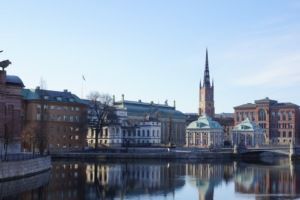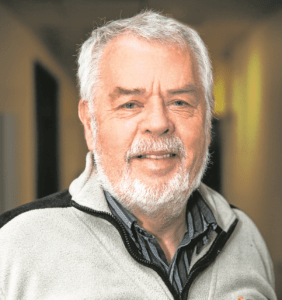Opinion
This Week’s Editorial: Hanging in the balance
Ejvind Sandal
This article is more than 7 years old.

The main Swedish parties remain firm in their resolve to not include the right-wingers in any coalition (photo: maxpixel.net)
Sweden is the big brother of the Nordic nations. There are 9.9 million Swedes – nearly as many as Danes and Norwegians combined – and amongst them you will find a million non-Swedes (at least not originally).
Their number has been steadily growing over the past decade. In response to the surge of migrants and refugees in 2015, Sweden was liberal. Of the million-plus that roamed across Europe, 200,000 made it to Sweden before the gates closed.
The Swedish public gradually reacted. A new movement coalesced into a political party, Sverigedemokraterna, which mainly advocated “Sweden for the Swedes”. They are ultra-nationalistic and celebrate the memory of their hero King Charles XII in dark suits with raised fists. Former members of the Nazi movement have been identified among the candidates at the general election.
Not all bad news
However, the Swedes like them. At the general election on September 9 we saw how much: 17.6 percent, which was lower than expected/feared. Although they did do particularly well across the water in Scania and Malmö, where they won two-thirds of the districts.
All the other parties have declared that they will have nothing to do with Sverigedemokraterna and their 67 members of parliament. They are tinkering with different constellations whilst pretending that Sverigedemokraterna are not there at all. The other parties swore an oath of solidarity before the previous election and are reiterating it now.
Some Swedes wonder whether this is subverting the democratic process – not the majority, but the 17.6 percent who voted for Sverigedemokraterna.
In Sweden during the Cold War period, resistance against the communists was carried out through a process of repressive tolerance: don’t fight your opponents in the streets because they fight dirty, but talk to them and they will lose momentum and become civilized.
In Denmark more than 100 rules and regulations have made life difficult for new and prospective citizens. Finally it seems that the race to the bottom is being slowed down and responsible voices are saying that enough is enough – for example, with regard to the handshaking nonsense.
New kids on the block
When this kind of softening takes place it makes room for a new, more radical right-wing group. In Denmark this is Nye Borgerlige, which according to the opinion polls will be voted into the Danish Parliament in its own right. It is demanding a total stop to asylum-seekers, expulsion from the country for foreigners convicted of a crime – however small – and no social help for them. Even Dansk Folkeparti has never gone this far.
When looking at the balance in Sweden it is worth remembering that 17.6 to 82.4 is not an even split. Refugees and migrants – desperate people that they are – can cause upheaval in any country because there is only so much that can be done for them, so it may seem as if the 17.6 percent have lost.
But that still leaves the other 82.4 percent with a sound democratic ability to stand up and be counted in these troubled times.

About
Ejvind Sandal
Copenhagen Post co-owner Ejvind Sandal has never been afraid to voice his opinion. In 1997 he was fired after a ten-year stint as the chief executive of Politiken for daring to suggest the newspaper merged with Jyllands-Posten. He then joined the J-P board in 2001, finally departing in 2003, the very year it merged with Politiken. He is also a former chairman of the football club Brøndby IF (2000-05) where he memorably refused to give Michael Laudrup a new contract prior to his hasty departure. A practising lawyer until 2014, Sandal is also the former chairman of Vestas Wind Systems and Axcel Industriinvestor. He has been the owner of the Copenhagen Post since 2000.










































